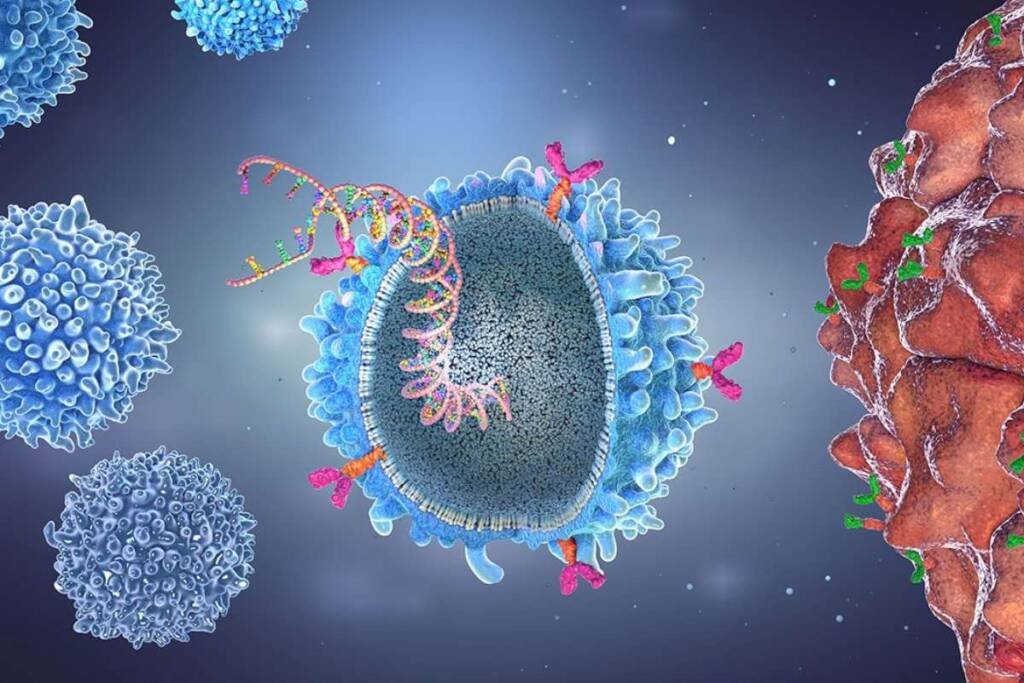CARsgen Therapeutics has set the stage for an intriguing partnership with Moderna that’s bound to heat up the cancer therapy landscape. The company is championing CT041, also known as satricabtagene autoleucel, a potent CAR-T therapy targeted towards Claudin18.2, a molecule with great potential in combating various gastrointestinal cancers, including gastric and pancreatic cancers. What makes CT041 stand out is its pivotal Phase 2 trial status, positioning it as a leading contender among solid tumor CAR-T therapies, even within the autologous realm.
However, CARsgen’s aspirations don’t stop there. They’ve recently unveiled a collaboration with the trailblazing mRNA technology frontrunner, Moderna. This strategic alliance is aimed at exploring the synergies between CT041 and Moderna’s Claudin18.2 mRNA cancer vaccine. This dynamic duo intends to embark on preclinical studies and subsequently a Phase 1 clinical trial to assess the combined potential of their cutting-edge therapies.
“CT041 is the most advanced solid tumor CAR-T in development (pivotal Phase II) and continues to show promise in treating gastric and pancreatic cancers. In our quest to make cancer curable, we are continuously exploring multiple modalities to eradicate tumors. Attacking tumors with CAR T-cell therapy in combination with a cancer vaccine could potentially provide greater clinical benefit to patients. Moderna has clearly established themselves as a scientific and commercial leader in the field of mRNA-based vaccines and therapeutics, and we are pleased to partner with Moderna to explore a potential synergism between our innovative therapies.”
– Dr. Zonghai Li, Founder, Chairman of the Board, Chief Executive Officer, and Chief Scientific Officer of CARsgen Therapeutics Holdings Limited
“We are pleased to partner with CARsgen to explore the potential synergy of CAR-T with an investigational mRNA cancer vaccine that encodes for the Claudin18.2 protein. Claudin18.2 is a promising therapeutic target to potentially treat multiple cancer types with high unmet medical need. We continue to deliver on the promise of mRNA science to create a new generation of transformative medicines in oncology.”
– Dr. Lin Guey, Chief Scientific Officer of External Research Ventures, Moderna
The spotlight on Claudin18.2 is well-deserved, as evidenced by the robust efforts of industry giants like Amgen, Astellas, Legend Biotech, and AstraZeneca, who have all turned their attention to this promising cancer target. The tight junction molecule’s potential in tackling gastrointestinal tumors has driven a flurry of research and therapeutic modalities. AstraZeneca’s recent investments in this domain exemplify the industry’s enthusiasm, with multimillion-dollar deals for both an early-phase antibody-drug conjugate and a CLDN18.2xCD3 bispecific antibody.
Moderna’s involvement in the Claudin18.2 space is notable, albeit not unprecedented. BioNTech has already entered the fray with BNT-141, a Claudin18.2 inhibitor that’s navigating a Phase 1/2 trial for a range of tumors, including gastric, pancreatic, ovarian, and biliary tract malignancies.
Interestingly, Moderna’s oncology pursuits extend beyond this collaboration. The company’s plans to test a personalized cancer vaccine, developed in partnership with Merck, alongside Keytruda in a Phase 3 trial for post-surgery treatment of patients with resected melanoma, have garnered considerable attention. If successful, this endeavor could potentially revolutionize the landscape of cancer treatment, introducing novel avenues for patients’ well-being.
CARsgen Therapeutics and Moderna’s strategic partnership exemplifies the power of collaboration in the pursuit of groundbreaking therapies. As these innovative technologies converge, the potential to reshape cancer treatment paradigms becomes an exciting reality, offering renewed hope to patients and healthcare providers alike.





























